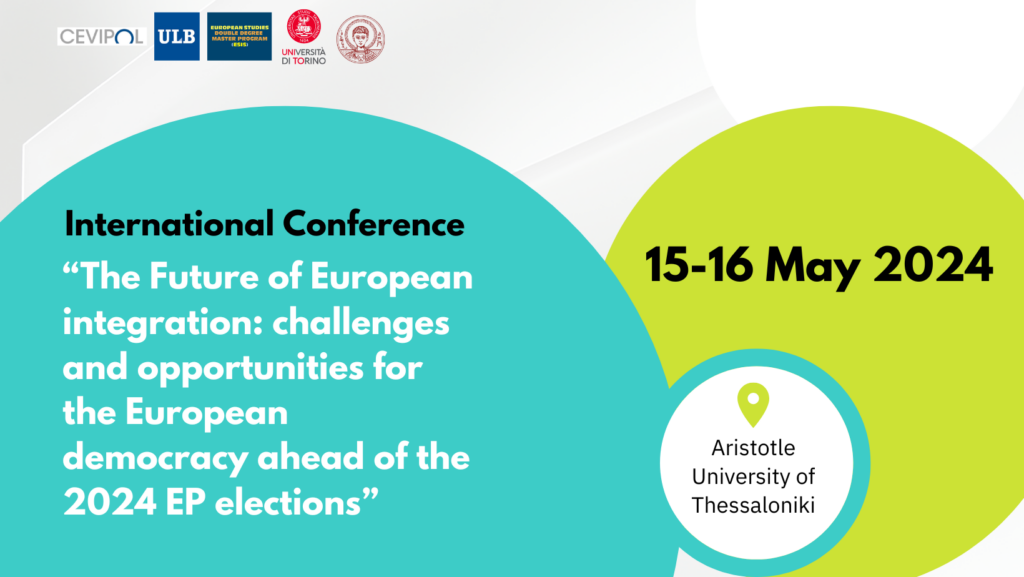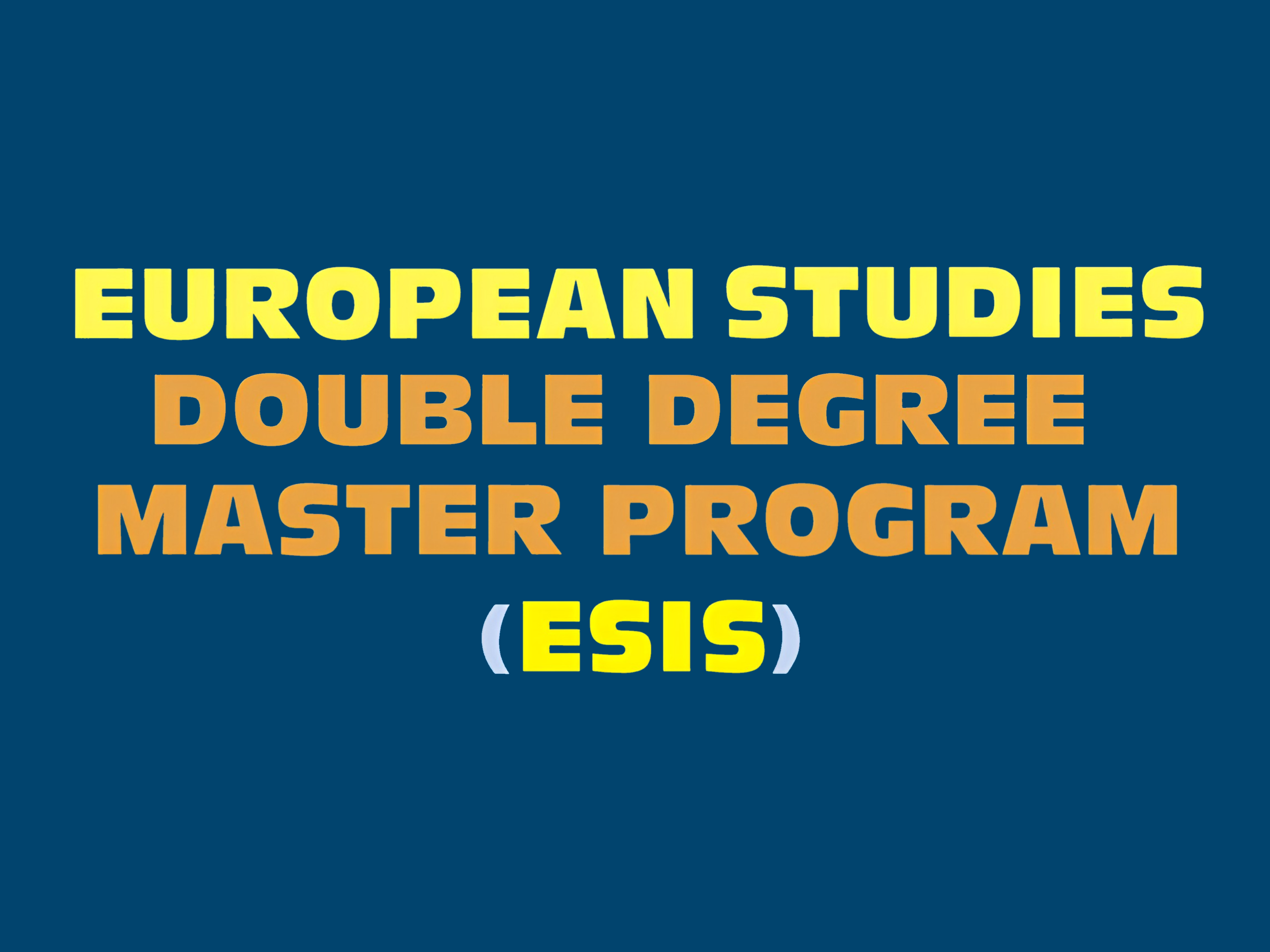
The Call for Papers for the International conference “The Future of European integration: challenges and opportunities for the European democracy ahead of the 2024 EP elections”is now open.
Event organisers
The conference is co-organized by the Double Degree Master Programme “European Studies” (ESIS) organisedby the School of Political Sciences at the Aristotle University of Thessaloniki and the Department of Cultures, Politics and Society at the University of Turin, the Law School of the Aristotle University of Thessaloniki and the Centre d’Etude de la Vie Politique (Cevipol) Universite Libre de Bruxelles (U.L.B.)
Scientific Committee: Ioannis Papageorgiou, IfigeneiaKamtsidou, Jean-Michel De Waele, Giovanni Finizio, George Andreou, EftychiaTeperoglou, Lina Papadopoulou
Conference objectives
Democracy, the rule of law and fundamental rights are founding values of the EuropeanUnion. With local, regional, nationaland European elections, the EU and its Member States represent one of the deepest democratic experiences in the world and a model for other countries and regions. Free and fair elections are the foundation of democracy, and independent and transparent electoral processes are vital to a competitive electoral environment guaranteeing citizens’ trust and maximizing legitimacy.
Despite Jean Monnet’s dictum that European integration will be forged through crises, the multiple and profound crises within Europe and around the world during these last years pose a significant challenge to the founding values of the EU. Thesecrises test the Union’s institutional and policy limits and increase the politicization of the integration process. At the same time, though, they have exacerbated challenges to the democratic values and institutions of the EU and its Member States, bringing again to the limelight the EU’s often-cited democratic deficit. Promoting free and fair elections, strengthening media freedom, countering disinformation, and encouraging citizen and civil society engagement should thus become key priorities for all European, national and subnational policy actors. In parallel, the international context for democratic values is worsening as illiberal governance proposals are strengthened around the world and become attractive even within Europe. Against this backdrop,the coming 2024 European elections will be a crucial test case for the resilience of European democracy.
The conference intends to analyse, in an inter-disciplinary perspective, the challenges for Europe ahead of the June 2024 elections and the opportunitiesa new debate on the meaning of European democracy can provide both within Europe and as a model for the rest of the world. To this end, we invite submissions of papers from including (but not limited to) the following themes:
- European values in the context of a changing international order
- Can European democracy be a model for other supranational systems
- European institutions: discourses and legitimization
- Europe in the traditional media and social media
- The EU democratic deficit and the role of the European Parliament in the EU policy process
- The role of European political parties and political groups of the European Parliament in enhancing the democratic values of the EU
- The evolution of the European elections and the participation in EP elections
- Populist and anti-EUmovements and electoral campaigns in European elections
- Public opinion towards the EU
- National political parties and the process of European integration
- EU multiple crises and their impact on the process of European integration
- Trust, legitimacy, EU solidarity
Submission, selection and publication process
Organizers invite abstracts of no more than 200 words. Abstracts should set out the main aspects and the structure of the paper. The selection of abstracts is based on the originality and innovativeness of the paper and the relevance to the conference themes.
The deadline for sending abstracts is 20 February 2024 (Thursday) 24:00h CET. Please send your abstract together with your affiliation, short CV (approx. 50 words) and contact information to msc-european_studies@polsci.auth.gr . The organizers particularly encourage applications from young scholars from Eastern-Central and Southern European countries.
Successful applicants will be notified by email by 15 March 2024. The authors of the selected papers will be required to submit a 3000-3500 word-long extended abstract to msc-european_studies@polsci.auth.gr by 30 April 2024 at the latest. The conference conveners are keen to explore suitable ways to publish selected papers after the conference.
The conference will be held in-person in Thessaloniki, Greece in the form of panel sessions. In conjunction with the above themes.
The conference organisers will cover the accommodation and board expenses in Thessaloniki for panelists.
For any further information please contact us at msc-european_studies@polsci.auth.gr.


